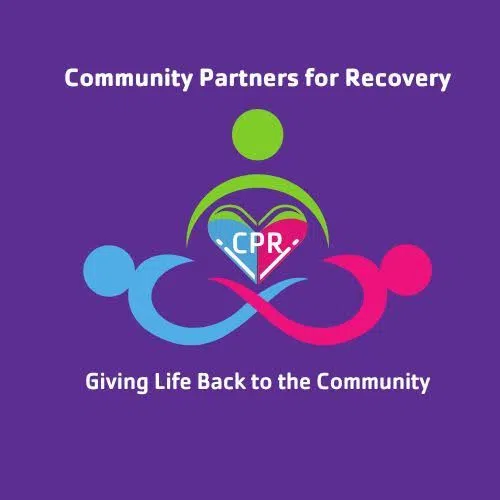
By GAGE WILSON
For Glasgow News 1
Libby Short, the mother of an addict; Christie Wall, the daughter of an addict; and AK Murrey, a former addict herself, each bring unique perspectives to the challenges of addiction and recovery. That led them to found Community Partner for Recovery with which they aim to address a pressing local need while reducing the stigma of addiction.
The newly established nonprofit in Barren County aims to combat substance use disorders with a community-centered approach to recovery.
“We talked about it for months and months,” Short said. “Finally, we said let’s do it, we said that we didn’t want other families to go through some of the things that we’ve been through.”
For each, the journey into this work is deeply personal. Short, when witnessing her child’s struggles with addiction had her eyes open to the complexities families face when supporting a loved one. “It’s a journey that no one is ever truly prepared for,” she shared, emphasizing the importance of involving families in the recovery process.
Christie Wall’s experience as the daughter of an addict has shaped her passion for breaking the generational cycles of substance abuse. Her perspective adds depth to the nonprofit’s commitment to addressing addiction as a family and community issue, “The whole point is trying to keep families together.”
Meanwhile, AK Murrey serves as a living testament to the power of recovery. Having overcome addiction herself, Murrey brings a message of hope and resilience. “If we can get rid of the stigma surrounding addiction, and educate, not just the addict, but the community on how they can be contributing members of society, that’s a success,” she said, reflecting the organization’s mission to empower others to reclaim their lives.
“In these months, we have done our own research, requesting numbers from Barren County, “ Short added. “Because we want this to be specific to Barren County.”
To better gauge the depth of the need, the trio contacted Ryan Skinner, Project Manager at T.J. Samson, who reported that 279 patients in the area in emergency and urgent care centers tested positive for toxic substances last year. Additionally, the Barren County Detention Center reports that over 60% of felony intakes involve substance abuse, marking a dual strain on local healthcare and justice systems.
According to Wall and Short, their nonprofit embraces a community-centered approach involving each level of addiction focusing on providing psychosocial support, such as housing assistance, employment resources, and education opportunities. “We are here to meet someone where they are at,” Short said, while describing how the center’s services help individuals build “recovery capital,” which was defined as, “The personal and social assets needed to sustain long-term recovery.”
Data supports the effectiveness of such community-centered approaches. Recovery programs across Kentucky, including those under the, have shown significant positive outcomes. A study by the University of Kentucky’s Center on Drug and Alcohol Research found that 83% of clients in these programs were employed at follow-up, compared to just 44% at intake. Similarly, rates of homelessness dropped from 29% to 11%, while illegal drug use decreased from 89% to just 15%.
Short also pointed out how Community Partner for Recovery will also strive to be a “one-stop-shop” offering programming for ranging from art to horticulture-therapy. She said recovery comes different in every form as well as the time sensitive nature of recovery. There would be programs that highlight education in regards to addiction, as well as support opportunities for teenagers affected.
The range of services come with a price, which spurred the group to see what impact the nonprofit could have. “We ordered a study from the Fletcher Group,” Short said, “and over a 15-year span the projected returns amounted to over $1 billion.”
This estimate is predicated on an annual operating budget of $300,000 with a 40% success rate. “We are aware that 40% is an aggressive number,” she said. “But, that is just who we are, if we are going to do it, we are going to do it.”
The group also found that for every dollar invested in recovery, communities see a return of $243.09, with benefits including reduced criminal justice costs, healthcare savings, and improved productivity.
Short, Wall, and Murrey hope to create a ripple effect, strengthening individuals in recovery and the broader community. “Substance use recovery is about more than just overcoming addiction—it’s about rebuilding lives, restoring dignity, and fostering a community where everyone can thrive,” Short said.
The burgeoning center has already seen an outpouring of support from the community, with special mention to another nonprofit. “Goodwill has offered to teach some of the classes that they offer in Bowling Green right here in Glasgow,” Short said. The programming in support will be free to those seeking help, with the only stipulation being that those wishing to join the center utilize its programs.
Community Partner for Recovery will be located at 614 Columbia Ave. in Glasgow is set to open Spring of 2025.
Thank you guys very much for your efforts.
To God be the glory!